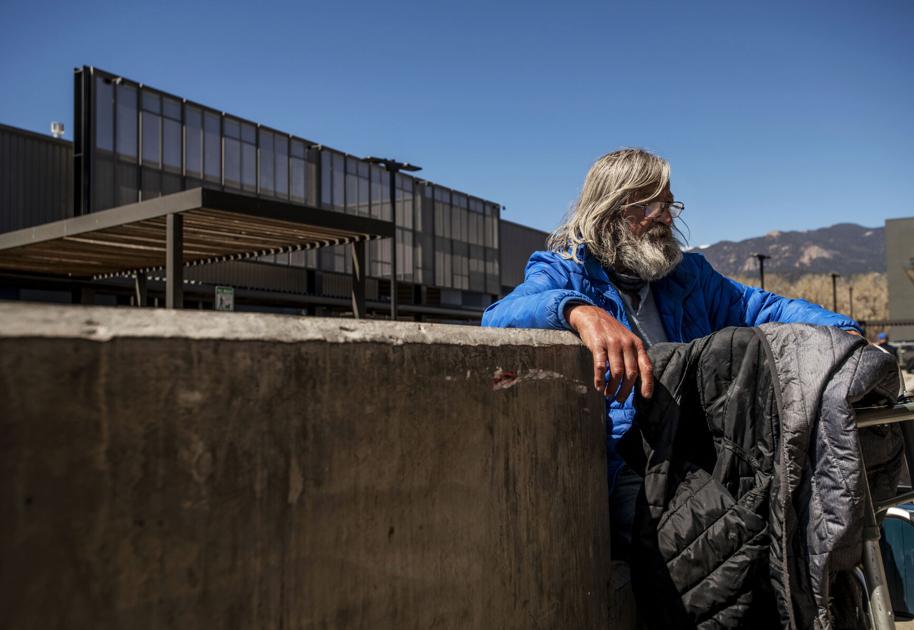After bringing back all 107 employees and 180 volunteers in June, Colorado Springs’ largest homeless shelter has a COVID-19 outbreak infecting 17 staff and clients.
The most recent confirmed cases at Springs Rescue Mission were detected June 25, and the outbreak remains active, according to El Paso County Public Health data.
Springs Rescue Mission since has reverted to stricter protocols that had been lifted under relaxed pandemic guidelines from the Centers for Disease Control and Prevention, said Travis Williams, chief development officer.
Masks are back for all staff, he said, and optional for clients. Additional sanitization and handwashing also are in place.
“All the regular things to manage the spread,” Williams said.
Temperature checks are continuing during intake screenings at the site’s new welcome center, he said.
The center opened in April and gives a single-entry point to the large, fenced campus, which provides emergency shelter for homeless men and women, three free meals a day, backpack storage, mail service, addiction recovery programs, job assistance, laundry, showers, case management, a transitional housing complex and other services.
“We serve such a vulnerable population and a transient population that come from all over that it’s not really surprising to us,” Williams said of the outbreak, the organization’s third.
Springs Rescue Mission recorded five COVID infections in May. An initial outbreak began on Oct. 25, 2020 and extended into January.
The numbers reflect “many nuances,” Williams said.
Anyone entering the campus with symptoms of the novel coronavirus or a high fever is detained and referred to medical care or an isolation shelter for the homeless.
“A potential guest may not have even stepped foot on our campus before being sent to another provider,” Williams said. “Yet, if they tested positive and if they didn’t have an address, the case was often attributed to Springs Rescue Mission.”
Williams believes strict safety and hygiene practices prevented more outbreaks from occurring, noting that a top health official from the Trump administration in January evaluated the campus’ COVID practices and praised the organization for its handling of the virus.
The shelter did not have any outbreaks during the first seven months from the pandemic’s onset in March 2020.
An anonymous donor gave $10,000 to pay for 24 Plexiglas partitions that have been set up between tables in a new dining hall that opened last September, Williams said. Capacity is still restricted to about half of its 180-diner capacity, with meals being served in two shifts.
Springs Rescue Mission also has worked with Peak Vista Community Health to vaccinate about 200 people on the campus, he said.
The Marian House, a soup kitchen that provides related services to the homeless, gave shots to 109 clients at COVID vaccination clinics and more to walk-ins requesting a vaccine, said spokeswoman Rochelle Schlortt.
The Marian House has not had a COVID outbreak, she said, which Schlortt attributes to strict alterations to operations and health procedures.
The dining hall is continuing the pre-plated, pre-set meals model, instead of serving cafeteria-style, and on Thursday resumed temperature checks, due to an uptick in COVID infections in the community, Schlortt said.
The Salvation Army’s R.J. Montgomery Center, which provides shelter for homeless men, women and children, also had an outbreak in December, involving nine cases, and the city’s shelter for homeless teens, The Place, reported an outbreak of infections in January.
For many of the homeless, COVID is not their biggest concern, Williams said, as people grapple with getting basic needs met and surviving on the streets.
“We’re doing our best to manage the virus for folks who have no other place to go,” Williams said. “These folks are free citizens, and we provide resources and mitigate.”
This content was originally published here.

